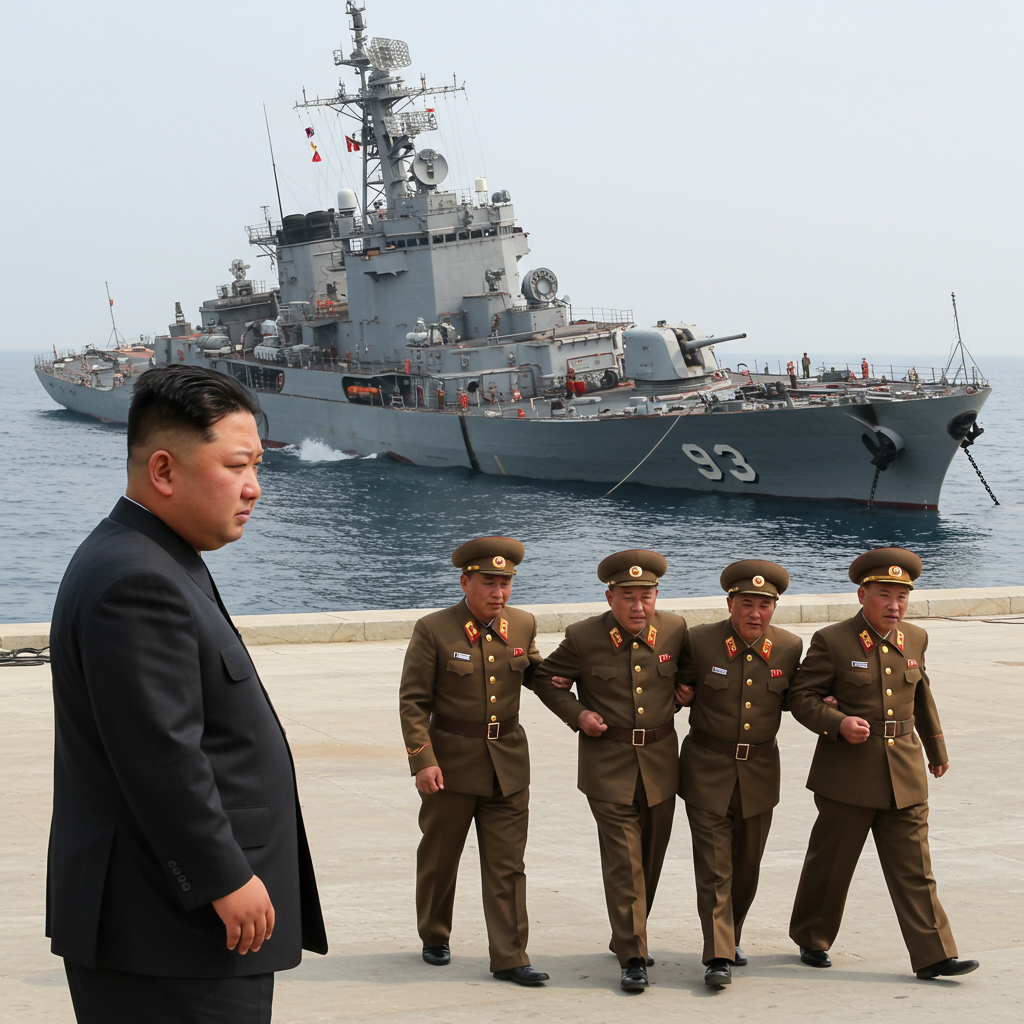Netanyahu Floats Striking Khamenei to End Iran Conflict
Israeli Prime Minister Benjamin Netanyahu has made a provocative assertion, telling ABC News that he is not ruling out targeting Iran’s Supreme Leader Ayatollah Ali Khamenei. In a striking claim that runs counter to concerns about escalation, Netanyahu argued that such an action would end the ongoing conflict between Israel and Iran, rather than intensify it.
Speaking amidst a period of heightened hostilities marked by daily aerial attacks and rising casualties on both sides, Netanyahu was asked about reports suggesting President Donald Trump had previously rejected an Israeli plan to assassinate Khamenei over fears it would escalate tensions. Netanyahu firmly rejected this premise, stating, “It’s not going to escalate the conflict, it’s going to end the conflict.”
The possibility of targeting the 86-year-old Supreme Leader comes as the region navigates its most significant confrontation in decades. Iran’s constitution designates Khamenei as the head of state, holding immense power over national policy, the military, and security forces, including the Islamic Revolutionary Guard Corps (IRGC).
Justifying Extreme Measures
Netanyahu framed the potential targeting of Khamenei as a necessary measure to counter what he described as Iran’s half-century of aggression. He accused the Iranian regime of terrorizing the Middle East, citing actions like the bombing of Saudi Arabia’s Aramco oil fields and the spread of terrorism, subversion, and sabotage.
“The ‘forever war’ is what Iran wants,” Netanyahu asserted, claiming Tehran is pushing the region towards nuclear conflict. He portrayed Israel’s actions as preventing this outcome and bringing an end to Iranian aggression, characterizing the struggle as a battle against “the forces of evil.” He also referenced Israel previously targeting Iran’s “top nuclear scientists,” controversially likening them to “Hitler’s nuclear team,” though he didn’t provide details on future targets. Netanyahu further claimed that Iran has plotted to assassinate both him and President Trump, citing a drone allegedly shot near his bedroom window as evidence of Iranian proxies’ threats.
Iran’s Defiant Stance
Following the Israeli Prime Minister’s remarks and amidst reported Israeli strikes on nuclear facilities and the killing of Iranian scientists and military leaders, Iran’s Supreme Leader Ali Khamenei issued his own defiant response. Addressing what he called a call for surrender from President Trump, Khamenei declared, “Iran will NOT surrender.” State media reported him stating, “War will be met with war, bombing with bombing, and strike with strike. Iran will not submit to any demands or dictates.”
Meanwhile, Israel’s Defense Minister Israel Katz added to the heated rhetoric, warning that Khamenei could face a similar fate to executed Iraqi leader Saddam Hussein if Iran continued “war crimes and firing missiles at Israeli citizens.”
The US Dimension: Mixed Signals and Citizen Safety
The United States finds itself navigating a complex role in the escalating conflict. While a US official stated that America did not provide military assistance or have involvement in Israel’s initial “surprise operation” against Iran, President Trump has publicly left the door open for potential future involvement, stating, “It’s possible we could get involved.”
Trump has also sent seemingly conflicting signals regarding diplomacy and the potential targeting of Khamenei. Reports suggested he rejected an Israeli assassination plan, yet he has publicly stated the US knows where Khamenei is hiding and called for his “unconditional surrender.” Separately, Trump posted on Truth Social expressing optimism about a rapid resolution, suggesting Iran and Israel “should make a deal, and will make a deal… we will have PEACE, soon.”
Netanyahu, while praising Trump as a “great friend of Israel,” appeared to subtly push back against the notion of immediate negotiations and potential US restraint on targets. He stated, “I understand, ‘America First.’ I don’t understand America, dead,” arguing Israel’s actions serve “mankind, of humanity.”
The human impact of the conflict on Americans is also growing. The US State Department has upgraded its travel advisory for all of Israel and the West Bank to “Level 4: Do Not Travel,” citing the volatile situation. For thousands of young Americans in the region, like a 20-year-old intern in Tel Aviv described by her worried parents, the reality means sheltering from attacks with short warning times and experiencing the conflict firsthand, leading to frustration over perceived lack of US attention to repatriation efforts.
Dismissing Diplomacy and Global Threat
Netanyahu dismissed a Wall Street Journal report suggesting Iran urgently sought to end hostilities and resume nuclear negotiations. He characterized such talks as “fake,” arguing Iran uses them to “lie, cheat, [and] string the U.S. along” while secretly building nuclear weapons and a ballistic missile arsenal. “They don’t want a seat at the table — they want to blow up the table,” he asserted, adding that Iran aims to “purchase time” through insincere talks. Nuclear talks scheduled to resume in Oman were reportedly suspended by Iran.
Addressing US voices, including commentator Tucker Carlson, who argue America should not get involved in the conflict, Netanyahu contended that Iran is a “threat to the entire world,” not just Israel. He highlighted Iran’s “Death to America” chants, questioning how some could view the conflict as not America’s business, calling such a perspective “utter blindness.” He emphasized that America is supporting Israel in defense, for which he expressed deep appreciation, arguing it’s a stand “with the good against evil.”
With Israeli Defense Minister Israel Katz indicating an intent to “increase the intensity of attacks,” and Iran’s Supreme Leader vowing resistance, the prospect of escalating conflict, potentially involving targets previously considered off-limits, remains a critical focal point in the tense standoff.



